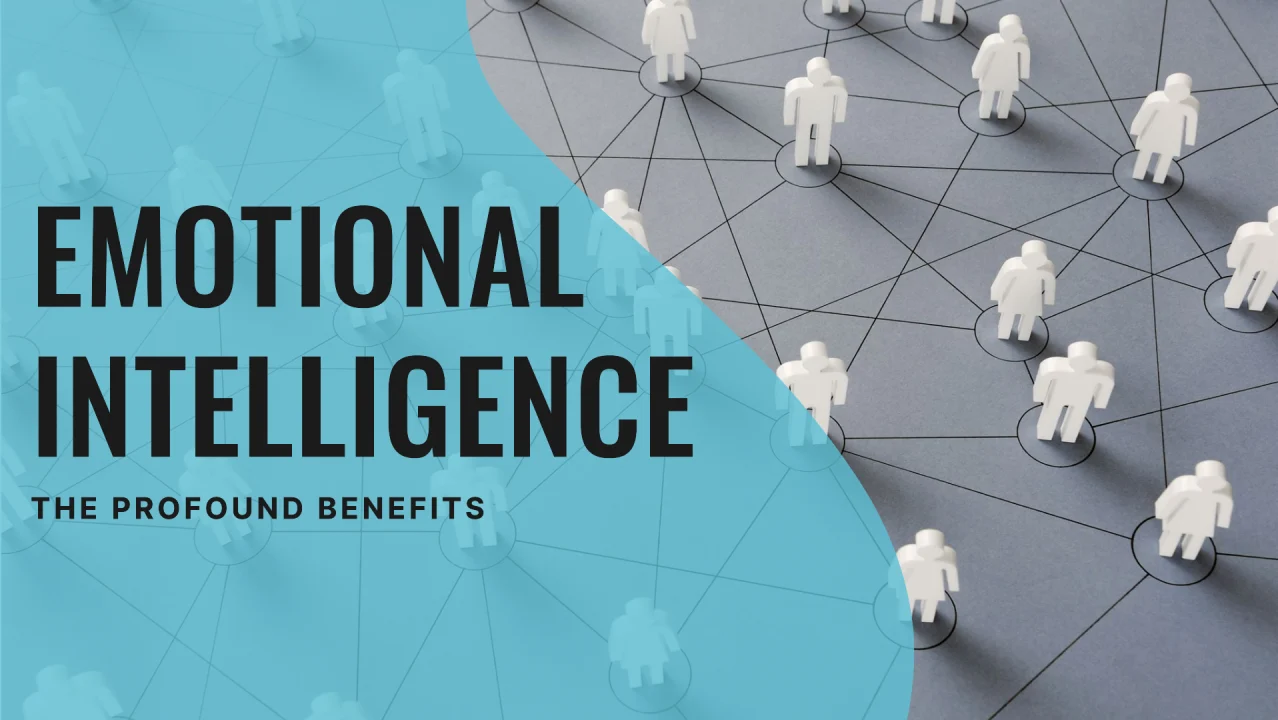Latest Posts
June 30, 2025 Tariffs: The Upside
June 30, 2025
Tariffs: The Upside
June 30, 2025
 Exploring the Role of Intrapreneurs: Innovation Drivers Within Organizations
June 30, 2025
Exploring the Role of Intrapreneurs: Innovation Drivers Within Organizations
June 30, 2025
 Mastering Productivity: A Guide to Being More Effective While Working from Home
Mastering Productivity: A Guide to Being More Effective While Working from Home
Newsletter
Sign up to receive email updates from the Freightpath.
"*" indicates required fields
The Profound Benefits of High Levels of Emotional Intelligence
June 13, 2024
In a world where intelligence is often equated with cognitive abilities, the concept of emotional intelligence (EI) emerges as a powerful force reshaping our understanding of human potential and success. Coined by psychologists Peter Salovey and John Mayer in the early 1990s and popularized by author Daniel Goleman, emotional intelligence refers to the capacity to recognize, understand, and manage our own emotions, as well as to recognize, understand, and influence the emotions of others. While traditional measures of intelligence focus on cognitive abilities such as memory, problem-solving, and critical thinking, emotional intelligence delves into the realm of emotions, offering a nuanced perspective on human behavior and interpersonal dynamics. In this essay, we will explore the multifaceted benefits of high levels of emotional intelligence across various domains of life, including personal relationships, career success, mental health, and overall well-being.
One of the most significant advantages of possessing high emotional intelligence lies in its impact on personal relationships. Individuals with a keen sense of emotional intelligence are adept at navigating the complexities of human interaction with sensitivity and empathy. They possess a deep understanding of their own emotions, allowing them to communicate effectively and assertively while maintaining respect for others’ feelings. Moreover, they exhibit strong interpersonal skills, such as active listening, empathy, and conflict resolution, which are crucial for building and sustaining healthy relationships. Research has consistently shown that people with higher levels of emotional intelligence experience greater satisfaction and intimacy in their relationships, as they are better equipped to handle conflicts, express empathy, and foster trust and mutual respect.
Furthermore, emotional intelligence plays a pivotal role in professional success and leadership effectiveness. In today’s dynamic and interconnected workplace, the ability to understand and manage emotions is increasingly valued as a critical leadership trait. Leaders with high emotional intelligence can inspire and motivate their teams, cultivate a positive work environment, and navigate through challenges with resilience and composure. They excel in communication, negotiation, and conflict resolution, fostering productive collaborations and driving organizational success. Moreover, individuals with strong emotional intelligence are adept at managing stress and adapting to change, essential skills in today’s fast-paced and unpredictable business landscape. Numerous studies have demonstrated a positive correlation between emotional intelligence and various indicators of professional success, including job performance, leadership effectiveness, and career advancement.
Beyond interpersonal relationships and professional success, high levels of emotional intelligence are closely linked to mental health and overall well-being. Research indicates that individuals with greater emotional intelligence exhibit lower levels of stress, anxiety, and depression, as they are better equipped to cope with life’s challenges and setbacks. By cultivating self-awareness and emotional regulation skills, they can effectively manage negative emotions and maintain a positive outlook even in the face of adversity. Moreover, emotional intelligence is associated with higher levels of resilience, optimism, and life satisfaction, contributing to overall psychological health and resilience. Additionally, people with high emotional intelligence tend to have healthier lifestyle habits, such as seeking social support, practicing mindfulness, and engaging in self-care activities, which further enhance their well-being and quality of life.
Moreover, emotional intelligence plays a crucial role in academic achievement and lifelong learning. Students with higher levels of emotional intelligence demonstrate better problem-solving skills, decision-making abilities, and academic performance. They are more engaged in learning, exhibit greater motivation and perseverance, and develop stronger interpersonal relationships with peers and educators. Furthermore, emotional intelligence enhances students’ social and emotional competence, equipping them with essential skills for success in school and beyond. By fostering a positive school climate and supportive learning environment, educators can nurture students’ emotional intelligence and promote their academic success and personal development.
In conclusion, the benefits of high levels of emotional intelligence are manifold and far-reaching, encompassing personal relationships, professional success, mental health, and overall well-being. By cultivating emotional intelligence, individuals can enhance their interpersonal relationships, navigate through challenges with resilience and composure, and lead fulfilling and meaningful lives. Moreover, fostering emotional intelligence in schools, workplaces, and communities can contribute to a more compassionate, empathetic, and harmonious society. As we continue to recognize the importance of emotions in shaping human behavior and experience, emotional intelligence emerges as a potent force for positive change, empowering individuals and communities to thrive in an increasingly complex and interconnected world.
CEO @ FreightPath Inc. | CSCMP Corporate Member | We Deploy The Industry’s Most Comprehensive Global Supply Chain Curriculum | 500+ Course Library | gofreightpath.com/course-catalog
